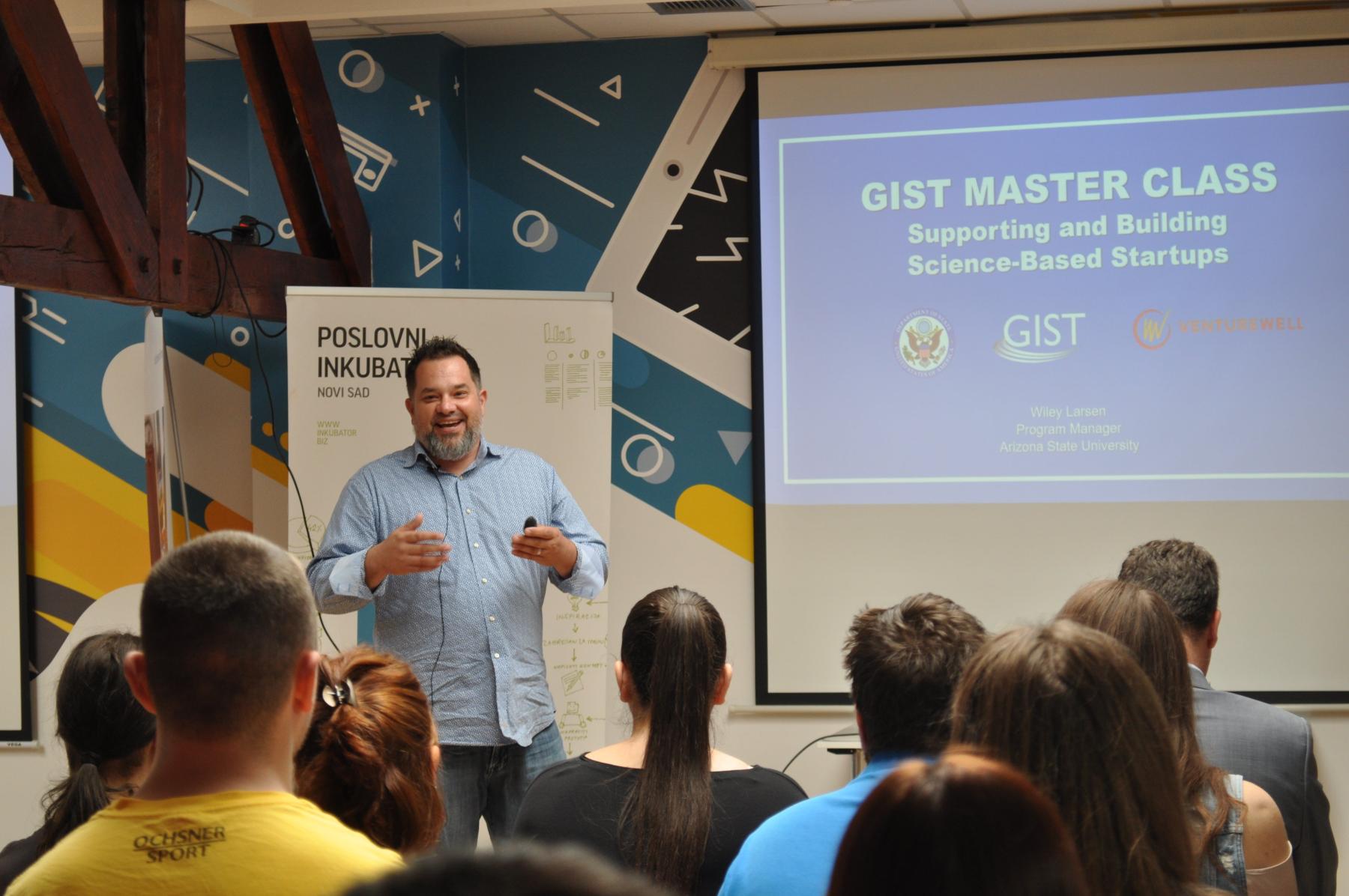
An argument for entrepreneurship
There are a lot of people that think that postdocs are the perfect people to form startups. Myself included.
But, of course, I’m biased. Many of you know that I’m an entrepreneur myself. Back in 2014, I got together with a couple of friends, and we licensed a technology from Barrow Neurological Institute that we believe will change the way people diagnose neurological disorders. It’s thrilling, and frustrating, and exciting, and challenging, and every other kind of emotion you can think of. But we think, someday, it’s going to make healthcare better. In the meantime, it’s a tremendous learning experience, and gives me a perspective that I would not have otherwise gotten.
Here’s why I think postdocs make good entrepreneurs:
You know about research. And successful businesses do their research. You might think you need a lab, or a grant, or an infrastructure, or a this or a that – but really what you most need is an idea and the research skills to back it up. Because you are a postdoc at ASU, there are a number of supports available to you to “bring that idea to market,” as they say. But before we go there, here are a few other things that you already bring to the table:
You work your butt off. And you’re passionate. You work 60, 70, 80 hours a week. Entrepreneurs do this, too.
Your postdoc salary helps you bootstrap. Entrepreneurs often have to “bootstrap” their startup in the early phases. This means you work a day job or depend on a spouse or partner to pay the rent while you work on starting the business, until you can get funding. If your startup is based on your research, then that gives you a couple years to “bootstrap” on your postdoc salary, until you can secure small business research grants to pay your salary from your startup.
You’re coachable. You probably don’t know what you don’t know about business. This means that we can hook you up with mentors and we can teach you the business side.
So how does one start this process?
I recommend that postdocs start with one of the “I-Corps” programs sponsored by the federal government. NSF has one, as does NIH and DoD. ASU is actually an NSF-designated I-Corps Site, which means we offer I-Corps “Lite” to give you a taste of the process. Hear my testimonial for the I-Corps program.
You will also need to disclose your invention to the university’s technology transfer office. Here at ASU, the office goes by SkySong Innovations (ß Google it). They have some paperwork you’ll need to fill out, and this starts the process of patenting your invention. You’ll need to work with your advisor to do this.
Then you form a company, usually an LLC. This can be done online with the Arizona Corporation Commission and will cost you about $50. You’ll also need to publish a notice in a newspaper that the company has been formed. This is also pretty easy. And BOOM! You’re a company.
Third, you’ll need to negotiate a license agreement with SkySong Innovations. This agreement is basically a permission slip that allows you to “exploit” your ASU-owned research for personal financial gain. As part of this agreement, you’ll contribute some equity and a royalty to ASU. This is also standard practice.
Then the fun really begins--figuring out who your customers are, defining your value proposition, identifying key partners and resources, and of course, developing a revenue stream.
If I piqued your interest at all, and you want to talk about starting a company, let me know and we’ll grab a coffee and talk about it.
I also highly recommend that you come to the Brown Bag on October 26, “Intro to Intellectual Property” and hear about some of the details of the patenting and licensing process from the staff at SkySong Innovations.
More stories from the Graduate Insider

Graduate funding deadlines for Fall

How to feel confident in your next interview
Let’s be honest, interviews can feel nerve-wracking. Your palms sweat, your heart races, and you start to second-guess whether you even remember your own name. But here’s the good news: with a little preparation, you can walk into (or log onto) your next interview feeling calm, collected, and ready to shine.
